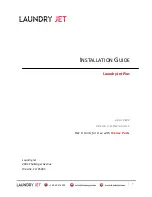
10
A perfect seal is essential in order to maintain the
vacuum conditions in the bag. This can be identified
by a clearly visible seal with no sign of any burns.
Always check that the seal is on top of or parallel
to the dotted line on the KitchenAid bag.
Moreover, check the effectiveness of the seal: after
sealing, it must not be possible to pull the edges of
the bag apart. If this is not the case, transfer the
food into another bag and repeat the vacuum
packing procedure.
IMPORTANT
For optimum management of bags and food
contained in them, write the packing date and
contents on the space provided above the seal.
IMPORTANT
If upon repeating the vacuum packing
procedure the problem persists, contact the
after-sales service.
After completing the vacuum
cycle and sealing the bag, return it immediately to
the refrigerator or freezer.
Using KitchenAid vacuum containers
For liquid foods or delicate produce which is easily
crushed, use the special KitchenAid vacuum
containers.
Only ¾ fill the containers.
1. To prepare a vacuum container, place the food
inside and fit the lid on the container.
2. Position the container inside the vacuum
chamber, in the centre of the compartment
located in the base.
3. Close the lid and at the same time select the
vacuum container cycle, holding the machine's
glass lid down for a few moments: in this way
the lid will remain shut and tight to the seal for
the duration of the cycle.
To open containers, turn the valve on the lid in the
direction indicated by the arrow: this will let air
back into the container and enable the lid to be
removed with ease.
On completion of the vacuum
cycle, which makes the containers airtight, return
the food
to the refrigerator
within 30 minutes.
IMPORTANT
KitchenAid vacuum containers are not suitable
for freezer use.
WARNING
WARNING
Summary of Contents for KSVC 3610
Page 1: ...Instructions for use ...
Page 2: ......
Page 19: ......
Page 20: ...5019 744 02024 A GB Printed in Italy n 03 12 ...





































